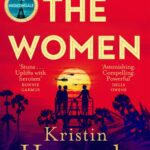Opinion | SMH
Raymond Bonner
In his inaugural State of the Arts oration, Minister Tony Burke laudedthe “history and legacy” of Labor’s commitment to the arts, tracing it back to Gough Whitlam.
Burke faulted recent Coalition governments for defunding many cultural programs. Writers have been “the most underfunded”, he added.

The Labor government has pledged $286 million to support the arts, the centre of its national cultural policy, which it has dubbed Revive.
It all sounds wonderful. But there is a glaring omission from Labor’s policy in Burke’s speech: how do you support writers if the market for their books is being steadily destroyed?
Sixty-five per cent of Australian bookstores shut their doors between 2013 and 2023, according to WordsRated, a research data and analytics group.
That’s an alarming number. But it’s a reality, and one that corresponds with the increasing plight of Australian writers whose books, with rare exceptions, do not sell in the numbers they did 20 years ago.
Yet, nothing in Labor’s policy, nor in Burke’s speech, calls for support of Australia’s small, independent bookstores. These shops provide shelf space, and a life, to writers who would otherwise toil in obscurity and poverty.

“Without independent bookstores, there is effectively little market for Australian literature and no future for Australian writers,” Richard Flanagan, one of our leading writers and public intellectuals, tells me.
The Albanese government doesn’t need to do much if it’s serious about its commitment to writers and the arts. It doesn’t need to give any subsidies or tax breaks. Nor does it need to spend any taxpayer dollars.
All the government needs to do is level the economic playing field: for a limited period after the publication of a book’s first edition, disallow discounting.

It’s not a radical idea. Fixed-price laws for books are the norm for most EU countries including Germany, France, Spain, Italy, Norway and Hungary, as well as Mexico, Argentina and Japan.
In Germany, the publisher fixes the price at which a book can be sold for the first 18 months after publication. It applies to every bookseller in the country, large or small, and to books being sold online. There are fines for violating it.
Everyone seems to benefit, including publishers, who have “flourished under the fixed-price system”, the CEO of a large publishing house noted in an article examining the German literary scene.
Books are on average less expensive in Germany than almost every other European country, including Britain, which operates a deregulated market like Australia’s.

According to Michael Robotham, the best-selling Australian crime writer, fixed price laws are a bonus for authors. His books have sold millions of copies around the world, but he told me recently that he makes the most money – and his royalties are highest – in Germany “because of the fixed-price laws”.
Delivering his arts oration at the University of Western Sydney in November, Burke lamented that the suburbs are routinely neglected when it comes to government funding. He could have talked about the dearth of independent bookstores in western Sydney. It won’t be easy getting new ones to open.
It used to be that you could sell enough books to pay the rent and the wages, and earn a modest return. Modest means 2 or 3 per cent, not the 10 or 20 per cent that Wall Street wants. That is no longer possible. Rent and wages have gone up, dramatically, while volume has declined.
Amazon isn’t the only culprit. Independents also can’t compete with the discount department stores that often sell books at less than cost – loss-leaders designed to draw customers into the store to buy socks, laundry detergent or toys, all items that have bigger margins.
Labor’s cultural policy calls for the establishment of a Writers Australia body “to support writers and illustrators to create new works”.
Where are they going to sell them? Not at Big W, Target or K-Mart, where shelves are reserved for bestsellers, the blockbusters, the authors who have already made it.
One publisher told me recently that of the 100 books that the company publish in a month, only eight to 10 will be stocked by Big W. That’s 92 writers to add to Burke’s morgue of the “underfunded”.
The first day Prince Harry’s memoir Spare was published, a woman came into our bookshop in Avalon and asked how much it was. $59.99, I told her. With that, she took out her phone and showed me that she could buy it at Big W for $35.
Big W boasts that it sells books at “50% OFF RRP” (the recommended retail price, which is what independents sell at). That is less than what it costs independents to buy them from the publisher. Fair?
A “fixed-price” law in Australia won’t drive Big W or the online retailers out of business; they can still sell books at a huge discount, they just have to wait six months or a year. But it will save many independent book stores – and with them Australian writing.
Raymond Bonner is former New York Times journalist and the recipient of a Pulitzer Prize and an Emmy. He is co-owner of Bookoccino bookshop in Avalon.

